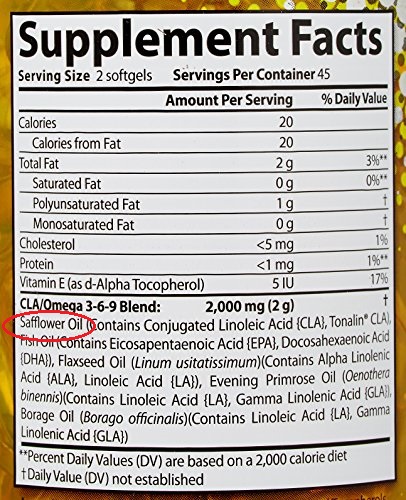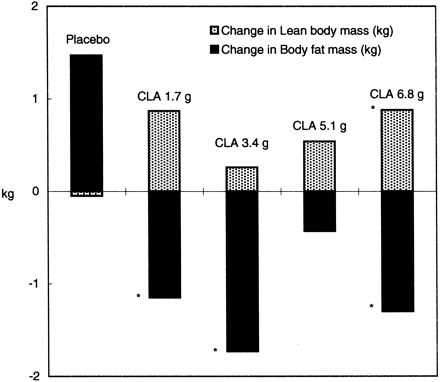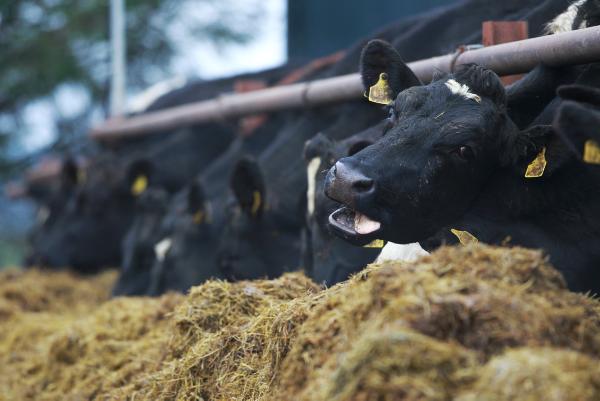 |
| Read Time: [6-7 minutes] |
That's impossible, no one can swallow a Mercedes whole.
 |
| 2014 Mercedes-Benz CLA |
Not the Mercedes CLA, but Conjugated Linoleic Acid or better known as CLA.
So, it's not the thing found at the dealership down the street?
No, I'm afraid not. CLA is actually a newly discovered "good fat" that has shown potential in recent animal studies to be a potent cancer fighter. In fact, small amounts have shown to not only block all three stages of cancer: 1) initiation, 2) promotion, and 3) metastasis, but also slow the growth of skin, breast, prostate, and colon cancer. (1)
Most of the anti-cancer agents that are currently on the market block only ONE of these stages. CLA has also been found to inhibit chemically induced cancer in rats. (2, 3)
Most of the anti-cancer agents that are currently on the market block only ONE of these stages. CLA has also been found to inhibit chemically induced cancer in rats. (2, 3)
The current human CLA research is still relatively new. According to a recent Finnish survey, women with the most CLA in their diets had a 60 percent reduction in breast cancer risk. (4)
So, who makes this magic?
CLA naturally comes from ruminant animals, such as cows and sheep, where the bacteria in their stomachs ferment their food and make it into this natural trans fatty acid.
GROSS! Trans fats are horrible for your health!!
That is very true, but CLA is the exception here. Unlike other trans fatty acids, CLA is conjugated, so there may be beneficial effects on human health, as mentioned above.
Just please make sure you buy grass-fed animal products, not grain-fed ones. In fact, there's up to 500 percent more CLA in animals that eat grass as opposed to that nasty grain silage. (5)
If grass-fed animal products are the best sources why does my friend's bottle of CLA say "safflower oil"?
 |
| Bottle of Censor® containing Tonalin CLA |
Great observation. Unfortunately, many people currently take a synthetic version that is widely promoted as an "all-natural fat burner." All current supplements use 'safflower oil' as their source of CLA.
 |
| Safflower oil |
The overall "fat-burning" research on CLA is actually inferior and unreliable. In almost all diet studies, the weight loss was pretty negligible, if there was any at all.
Another double-blind study found that doses above 3.4g of CLA for 12 weeks (3.4, 5.1, 6.4 grams) were associated with negligible decreases in fat mass and increases in lean body mass in overweight and obese participants. I say the word 'negligible' because it was.
 |
| CLA on body fat mass and lean body mass |
The most dramatic numbers were seen with 3.4g and were a killer -1.73kg fat mass with +1.26kg lean mass. (7)
Wow, that's a little disappointing.
Tell me about it. So you can take those safflower soft-gels, and they might make you lose enough fat to compensate for that one cookie you had last night. But just don't expect to see a significant amount of weight loss that many of these supplement companies claim.
I honestly don't trust the safflower source of CLA (t10c12 isomer) at all. If the first study I mentioned wasn't enough, how about the one where they took 60 obese males and gave them 3.4 g/day for 12 weeks, INCREASED insulin resistance, and glycemia REDUCED HDL "good" cholesterol. The placebo showed no change in these levels, and the weight loss numbers were not significantly different. (8)
No. With the current research, I'd say it's more of a money burner, if anything.
So, are CLA supplements a decent fat-burner or what?
If that's the case why do supplement companies use safflower instead of grass-fed animal sources?
Because a flower is CHEAPER to source from than a grass-fed animal. In their defense, it honestly is tough to squeeze a grass-fed filet mignon in a pill. Oh well.
What supplements can I take that WORK then?
You can start by drinking grass-fed whey protein shakes, which are a great natural source of CLA and have much higher glutathione levels than grain-fed wheys. Glutathione is actually a potent antioxidant that helps protect your muscle cells against harmful oxidation.
You can also try throwing some grass-fed butter into your coffee with coconut oil, like we talked about in my last post. Shaken, not stirred.









